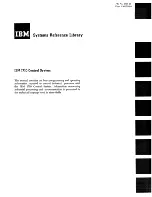
IDEC SmartRelay functions
108
IDEC SmartRelay Manual
Accuracy of T
Because of slight tolerances in the characteristics of elec-
tronic components, the set time T may deviate. The IDEC
SmartRelay has a maximum tolerance of ± 0.02%.
When 0.02% of the time T is smaller than 0.02 seconds, the
maximum deviation is 0.02 seconds.
Example:
The maximum tolerance per hour (3600 seconds) is ±0.02%,
which is proportional to ± 0.72 seconds.
The maximum tolerance per minute (60 seconds) is ± 0.02
seconds.
Accuracy of the timer (Seven-day/Twelve-month time switch)
To prevent timing inaccuracy of the real-time clock in C ver-
sions caused by this deviation, the timer value is continuous-
ly compared with a high-precision timebase and corrected.
The resultant maximum timing inaccuracy is ± 5 s/day.
4.3.3
Backup of the real-time clock
Because the internal real-time clock of a IDEC SmartRelay
is backed up, it continues operation after a power failure.
The ambient temperature influences the backup time. At an
ambient temperature of 25
°
C, the typical backup time is 80
hours.
4.3.4
Retentivity
The switching states and counter values of SFs can be set
retentive. This means that current data are retained after a
power failure, and that the block resumes operation at the
break point. The timer is not reset, but resumes operation
until the time-to-go has expired, for example.
To enable this response, however, the relevant functions
must be set retentive. Two options are available:
R: The data are retained.
/
: Current data are not retained (default). See the example
The hours counter forms an exception, because this function
is always retentive.
Courtesy of Steven Engineering, Inc. ● 230 Ryan Way, South San Francisco, CA 94080-6370 ● General Inquiries: (800) 670-4183 ● www.stevenengineering.com
















































